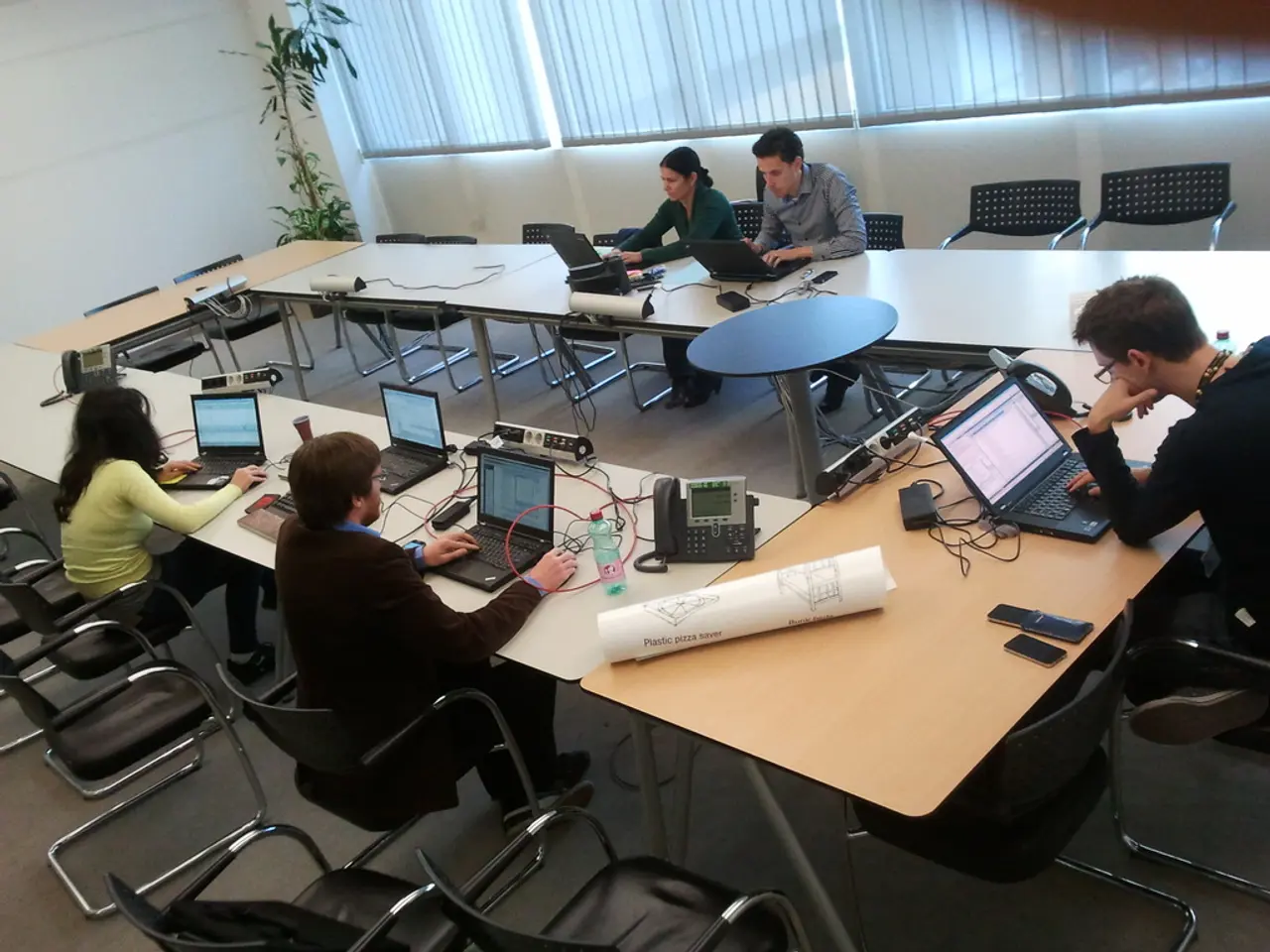Impact of Hybrid Work on Seattle Children's: Assessing Health Consequences and Workplace Efficiency
Seattle Children's, a renowned pediatric hospital, has navigated significant challenges in transitioning to a hybrid work model during the COVID-19 pandemic. The institution has been striving to maintain employee engagement, ensure workplace flexibility, and adapt its physical office space usage.
One of the main hurdles Seattle Children's has faced is ensuring flexibility and accommodating diverse employee needs. With the pandemic highlighting the importance of remote work options and flexible schedules, especially for those experiencing health impairments such as Long COVID, the hospital has had to make accommodations to retain its experienced, engaged workforce.
Another challenge has been making the office a desirable place to return to. As hybrid work models reduce daily office presence, Seattle Children's has had to create an environment that employees want to visit, rather than forcing a mandatory return. This involves fostering social activities, collaborative spaces, and a workplace culture that encourages in-person interaction while respecting remote options.
Balancing social connection and autonomy has also been a key concern. Hybrid work can reduce social isolation experienced during fully remote work, while also increasing autonomy and control over work processes. Seattle Children's has had to find strategies to maintain social cohesion and a sense of belonging among employees dispersed between home and office.
To address these challenges, Seattle Children's has implemented several strategies. Flexible, hybrid schedules have been introduced, allowing employees to choose remote or in-office work based on their circumstances and preferences. Enhanced community and social engagement efforts have been made to foster connection and avoid isolation, such as organized social activities and collaborative projects. Physical workspace adjustments, like optimizing office layout and capacity based on data about office usage and expected employee presence, have also been implemented.
Seattle Children's Senior Vice President and Chief Digital and Information Officer, Zafar Chaudry, has been at the forefront of these changes. He conducts town halls every month for 60 minutes to engage employees and foster connection. Chaudry emphasizes the importance of open communication and sharing personal experiences to foster empathy among coworkers.
Chaudry has also addressed IT challenges during the transition to remote work, setting up an app store for employees to order tech kits for remote work and offering $500 grants for equipment. He believes that sharing personal experiences can help employees feel understood and resonate with one another.
Despite the challenges, Seattle Children's has reaped benefits from its large-scale remote work. The hospital is projected to save $100 million over 10 years due to this transition. Seattle Children's has also expanded its hiring market, planning to hire in all 50 states and broadening its reach to include Washington, Alaska, Montana, Idaho, Texas, Georgia, and Florida.
However, Seattle Children's has also faced mental health challenges among employees who are isolated at home during remote work. To address this, the hospital has established an employee welfare group specifically for IT staff. Chaudry encourages leaders to have conversations with employees about their personal struggles during the pandemic.
In conclusion, Seattle Children's approach to the hybrid work model reflects broader lessons learned during the pandemic about the importance of flexibility, employee-centric policies, and building a hybrid work culture that balances productivity with connection.
- Recognizing mental health as a significant aspect of health and wellness, Seattle Children's has established an employee welfare group specifically for IT staff to support those isolated at home during remote work.
- Embracing technology to adapt to the new normal, Seattle Children's Senior Vice President and Chief Digital and Information Officer, Zafar Chaudry, has set up an app store for employees to order tech kits for remote work and offers $500 grants for equipment, emphasizing the importance of digital tools in workplace-wellness.




